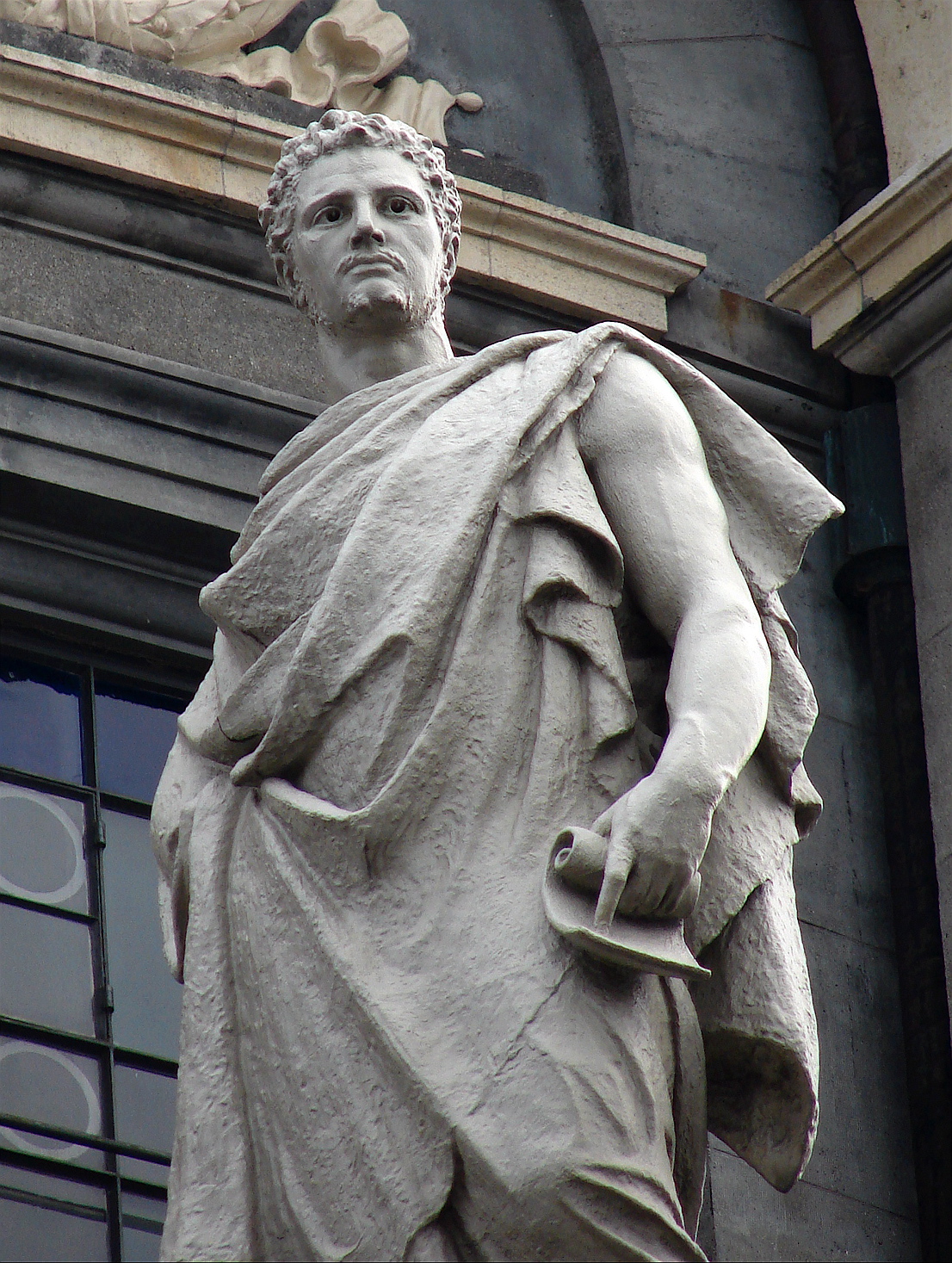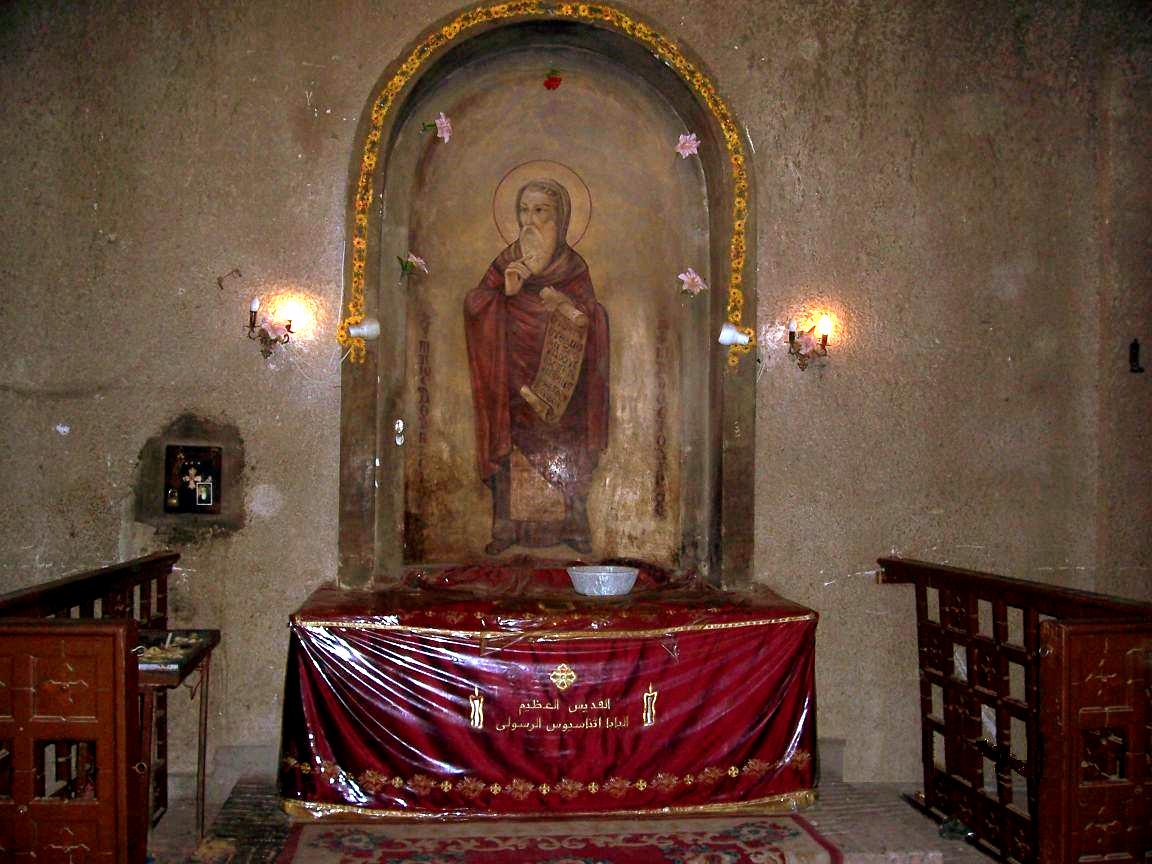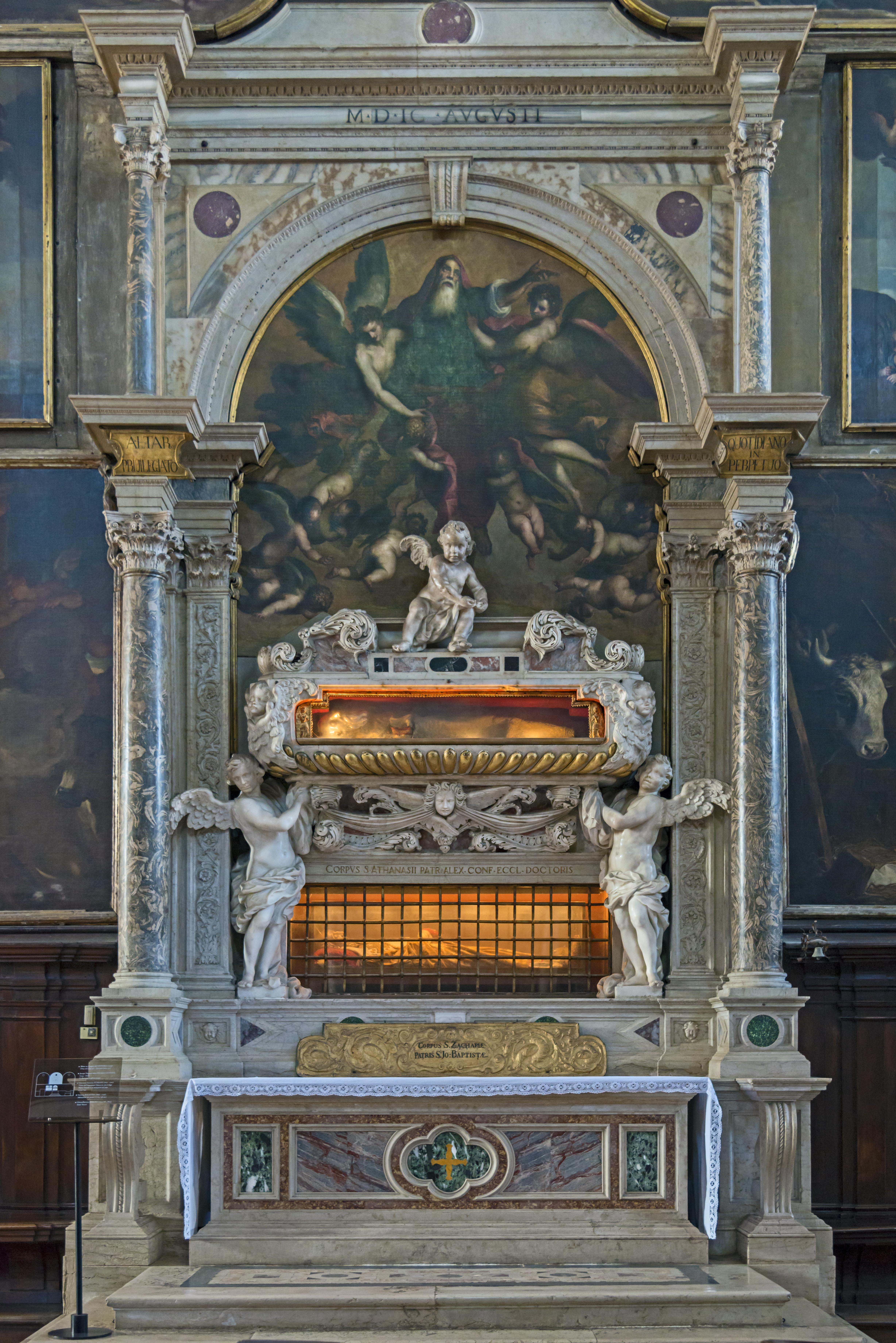
-St. Athanasius (1883–84), by Carl Rohl-Smith, Frederik’s Church, Copenhagen, Denmark.
In my study of and training in Christology, I have come to learn and to observe nearly every varied interpretation and manipulation, if you will, throughout history has been attempted, offered, and promulgated by heretics as to whom Jesus was and is. There is a truth and a saying when one studies Church history: “there are no new heresies”. This is so true. That word, heresy, grates on the modern ear. We much prefer the calm, soothing, comforting, anesthetizing sounds of relativism – contemplation without thought, without challenge. Peace at any cost, peace in our time. Thank you, St Neville Chamberlain (Warning: NOT a real saint!) This is so as opposed to a more challenging, sobering truth.
The rational mind with integrity cannot accept mutually exclusive truths and rest easy. The Church may have to deal with heresies for a time, from time to time, hopefully refute and suppress them successfully, but given the mind of man, general ignorance of and training in the theological sciences, our own willfulness and refusal to learn from our forbears in faith who have climbed Himalayan mountains of faith, thought, and life’s experiences, add in the work of the Enemy, and heresies constantly return over time mutated, altered, changed, but still holding onto the core deception. Bad thinking leads to bad action. History is replete with examples.
The most difficult conclusion human beings have had to come to, the hardest to hold, and the most embattled throughout human history, is that He was Whom He said He was: the Son of the Father, co-equal with the Creator and the Holy Spirit in true Trinitarian theology. I feel this is the most challenging since it begs of us the most difficult questions and challenges us profoundly. How would we live differently if His divinity were not an article of faith? But, rather, a daily, moment-by-moment live experience of fact – as we define fact? How would we live differently if we knew our appointment with Him were not merely a possibility, but an inevitability? For this reason, I believe this conclusion is the most difficult to which to come and hold because of the profound challenges and questions it poses – too much to bear many would claim. Hence, the heresies, both ancient and modern, and the human temptation towards them continue.
Arius (250-336 AD) was a bishop from Alexandria, Egypt. He taught that Jesus did not always exist, but was created by the Father and was of a different substance than the Father, nearly, or actually, implying Jesus was perhaps divine, but not Divine as God is Divine, but also a creature of God, like us, only better. At the heart of the Arian heresy, if taken to its logical conclusion, was truly to call into question Jesus’ divinity. At best, a second rate divinity, really.
It is really helpful at this point if one knows a little Greek and understands how one letter, “i”, one iota, literally, can change the entire meaning of a word and generally cause a big fight. But, I will spare you that for now. (Jehovah’s Witnesses and Seventh Day Adventists have sometimes been referred to as Arians or Semi-Arians. Unitarian Universalists deny the Trinity altogether, as well as several other problems. Gnosticism, which pre-dates Christianity, has been recreated in the modern age as Freemasonry and Scientology.)
Ok, I lied,
homoiousios/ηομο and homoousios/ηομοουσιος The first, the heretical word if inserted into the Creed, means of a “similar essence/substance”. The second means of the “same essence/substance”. BIG FIGHT!!!!! It caused such a huff, the Emperor Constantine ordered a Church council to meet, the Council of Nicea (325 AD), and work it out for the sake of peace in the empire. Wars have been fought over the words in the Creed, which is why I am always so scandalized when new, creative, modern, “Oh, what the hell. Let’s use this one today” type creeds get used rather blithely in Christian, especially Catholic worship. No wonder people, even the ordained, mea culpa, are often confused. When I teach young people, consistently they present their brains to me as so much theological mush. I fancy myself a theological personal trainer for the young – tightening their theological core, as my actual personal physical trainer is teaching me to tighten mine. Ouch! I am a certified catechist, you know. St Athanasius, pray for us!
When we recite the Nicene Creed (325 AD), it is the words,”We believe in one Lord, Jesus Christ, the only Son of God, eternally begotten of the Father, God from God, Light from Light, true God from true God, begotten, not made, one in being with the Father”, think of and thank St Athanasius, and those who held to the orthodox belief of the Trinity despite profound opposition and difficulty. We have Arius to thank that we are so emphatic, repeating over and over this truth when we pray the Creed, seventeen centuries later. Arius had trouble with the Trinity. Granted, that’s a tough one for any Christian, even the most erudite theologians, to wrap their minds around, let alone explain. Hence the ascription as mystery. But, mystery as it may be, most Christians do not slip into heresy and lead others to follow because they don’t like it, most.
St. Athanasius (296-373 A.D.) was born in Alexandria, Egypt, to noble Christian parents. He received an excellent education in theology, philosophy, rhetoric, and law, which he directed to the service of God. He made great progress in both wisdom and virtue, and made a spiritual retreat in the Egyptian desert with St. Anthony the Great. St. Athanasius became the Bishop of Alexandria and served in that role for 46 years. He tirelessly and courageously devoted most of his life to defeating the Arian heresy, which denied the divinity of Christ. When the majority of his fellow bishops were Arian heretics, which threatened the integrity of the whole Church, Athansius stood firmly and almost single-handedly against their error using his philosophical knowledge, theological wisdom, rhetorical skill, and strength of spirit. Despite having the support of several popes, he suffered great trials, scandals, and persecutions at the hands of his doctrinal enemies, and spent much of his life in exile. He was a participant in the Council of Nicea in 325 A.D. and did much of the theological work which supported the condemnation of the Arian heresy and the formulation of the Nicene Creed.

-Athanasius’ Shrine (where a portion of his relics are preserved) under St. Mark’s Cathedral, Cairo

“Even on the cross He did not hide Himself from sight; rather, He made all creation witness to the presence of its Maker. Then, having once let it be seen that it was truly dead, He did not allow that temple of His body to linger long, but forthwith on the third day raised it up, impassible and incorruptible, the pledge and token of His victory.”
— St. Athanasius of Alexandria
“You will not see anyone who is really striving after his advancement who is not given to spiritual reading. And as to him who neglects it, the fact will soon be observed by his progress.”
-St Athanasius
“The floor of Hell is paved with the skulls of bishops” – St. Athanasius, Council of Nicea, 325 AD
“Jesus, Whom I know as my Redeemer, cannot be less than God.”
-St Athanasius of Alexandria
“[Jesus’] body was for Him not a limitation, but an instrument, so that He was both in it and in all things, and outside all things, resting in the Father above. At one and the same time—this is the wonder—as man He was a human life, and as Word He was sustaining the life of the universe, and as Son He was in constant union with the Father.”
–St. Athanasius of Alexandria
“Now, man is afraid of death by nature, afraid of the decay of the body. But here is a really starling fact: whoever has put on the faith of the Cross despises even what is naturally dreadful, and for Christ’s sake is not afraid of death. So if anyone is skeptical even now, after so many proofs, and after so many have become martyrs to Christ, and after those who are champions in Christ have shown scorn for death every day—if his mind is still doubtful about whether death has been brought to nothing and come to an end—well, he’s right to wonder at such a great thing. But he should not be stubborn in his skepticism, or cynical in the face of what is so obvious. Let him who is skeptical about the victory over death receive the faith of Christ, and come over to His teaching. Then he will see how weak death is, and the triumph over it. Many who used to be skeptics and scoffers have later believed, and despised death even enough to become martyrs for Christ Himself.”
—St. Athanasius
“For He became man that we might become divine; and He revealed Himself through a body that we might receive an idea of the invisible Father; and He endured insults from men that we might inherit incorruption.”
–St. Athanasius of Alexandria
“Devils take great delight in fullness, drunkenness, and bodily comfort. Fasting possesses great power and it works glorious things. To fast is to banquet with angels.”
-St. Athanasius
“Christians, instead of arming themselves with swords, extend their hands in prayer.”
-St. Athanasius
“For, indeed, everything about is marvelous, and wherever a man turns his gaze he sees the Godhead of the Word and is smitten with awe.”
-St. Athanasius
“You cannot put straight in others what is warped in yourself.”
— St. Athanasius of Alexandria
Love,
Matthew

